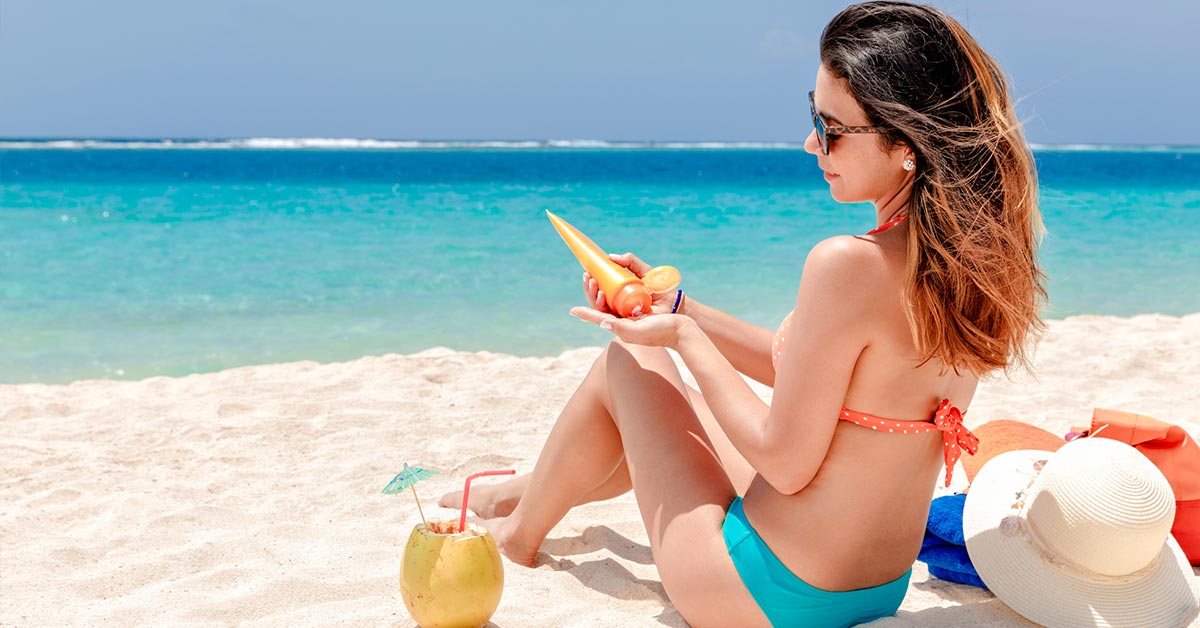 We all know that any significant amount of time spent outdoors should include the use of sunscreen. That is true if you’re relaxing on the beach, boating on a lake or going for a long walk. That sunscreen can help reduce the risks of early skin aging and skin cancer. However, there are some sunscreen myths out in the world that could end up causing harm. The decisions you make about skin care should always be an informed one.
We all know that any significant amount of time spent outdoors should include the use of sunscreen. That is true if you’re relaxing on the beach, boating on a lake or going for a long walk. That sunscreen can help reduce the risks of early skin aging and skin cancer. However, there are some sunscreen myths out in the world that could end up causing harm. The decisions you make about skin care should always be an informed one.
Here are the sunscreen myths that need to be debunked:
All Sunscreens Are the Same
Ultraviolet or UV radiation comes in two forms: UVA and UVB. Your sunscreen should protect you from both but not every brand does. You want to look for the words “broad spectrum” on your sunscreen lotion. As for the SPF factor, anything above 30 will provide you with the right amount of protection. The next time you go to the sunscreen display, pay attention to the labels and you’ll see that they aren’t all the same.
People with Dark skin have more melanin
A dark complexion means that skin has more melanin present. That is the cell that designates color. While it is true that darker skin can diffuse UV light at certain levels, it isn’t protection from skin cancer or sun-induced hyperpigmentation, which is more commonly known as sunburn. Unprotected exposure to the sun can cause skin damage to anyone regardless of that person’s skin tone or ethnicity.
Make-up Can Keep You Protected
Many make-up manufacturers are recognizing the importance of protection and adding SPF factors in their products. However, that doesn’t mean you are still totally protected because most of those cosmetics don’t reach the threshold of SPF 30 or higher. Plus, you would only be covering your face. Your arms, legs and any other exposed skin would still have to be covered with sunscreen.
Sunscreen Lotions Don’t Expire
This is another example of why you need to read the labels. If your sunscreen comes with an expiration date, then it means that the lotion’s benefits will breakdown after a while. That process is accelerated when the lotion is exposed to high temperatures and direct sunlight. To be safe, the lotion you buy at the beginning of the summer should probably be replaced the following year.
A Base Tan Offers Protection
Many beachgoers believe if that get a base tan before any marathon sunning sessions then they will be protected. Here’s the harsh truth: A healthy looking tan is sun damage. You might not have any sunburn with a tan, but the unexposed skin can still be compromised by direct exposure to sunlight.
Water-Resistant Sunscreens Don’t Need to Be Reapplied
Many sunscreens proclaim they are water-resistant. That can provide protection when swimming. However, that doesn’t equate to all day protection. Even with certain water-resistant sunscreens you must reapply after 80 minutes of swimming. You might also need to reapply if you are toweling yourself dry.
Getting out in the sun is good for your health if you keep your skin protected the right way.

